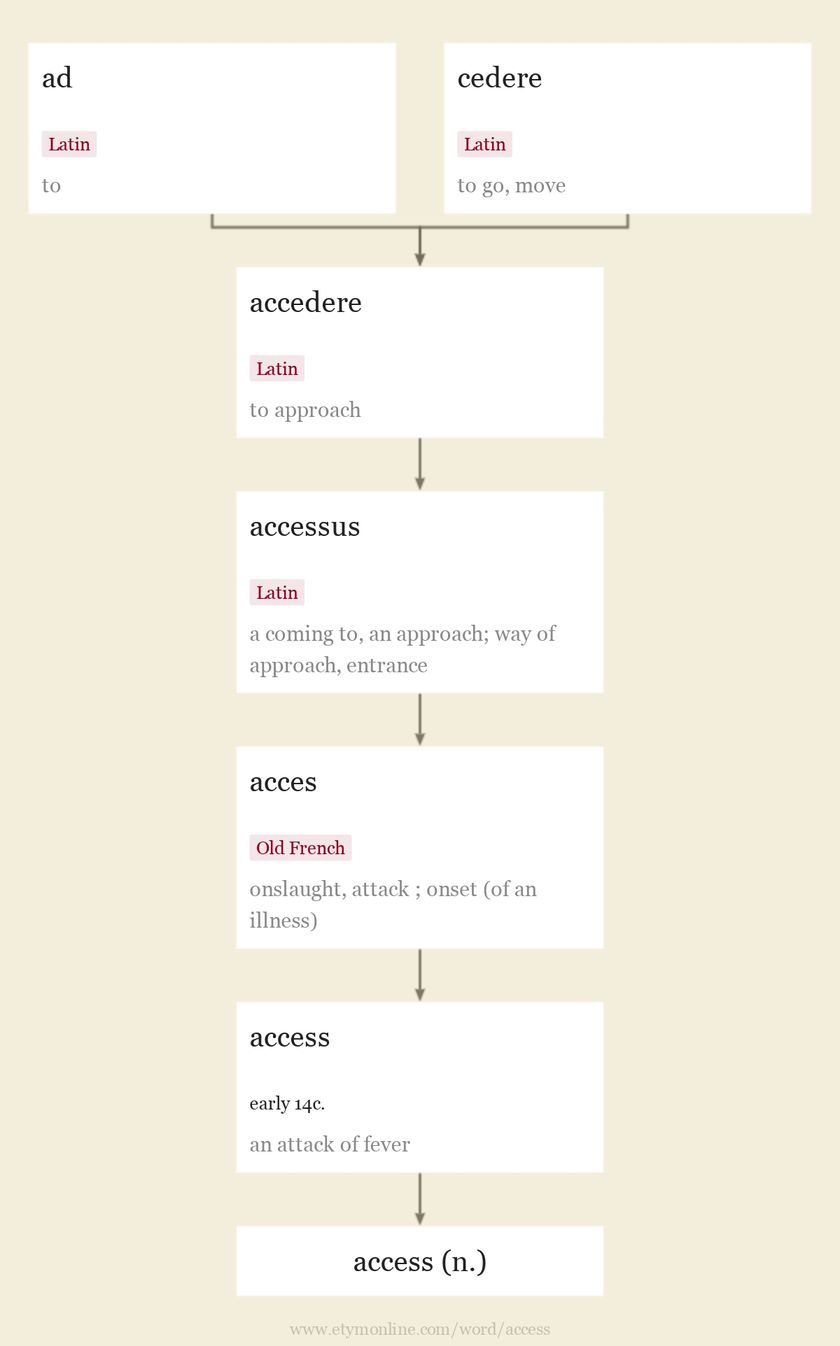On the word "Access"
Language is an evolving thing. The word "access" (and the related "accessibility") for instance has many meanings outside the domain of transport. For instance, when we talk about "Access to voting" in the US (the only so-called democracy where this is so much of a problem) is only in part about physically traveling to the polling place, much of it is about enfranchisement and rights.

Access: Etymology Online The Online Etymology Dictionary writes:
accessible (adj.) c. 1400, "affording access, capable of being approached or reached," from Middle French accessible, from Late Latin accessibilis, verbal adjective from Latin accessus "a coming near, an approach; an entrance," from accedere "approach, go to, come near, enter upon" (see accede). Meaning "easy to reach" is from 1640s; of art or writing, "able to be readily understood," 1961 (a word not needed before writing or art often deliberately was made not so). Related: Accessibility.
1758, from French accessibilité (from Late Latin accessibilitas), or else a native formation from accessible + -ity.
early 14c., "an attack of fever," from Old French acces "onslaught, attack; onset (of an illness)" (14c.), from Latin accessus "a coming to, an approach; way of approach, entrance," noun use of past participle of accedere "to approach," from assimilated form of ad "to" (see ad-) + cedere "go, move, withdraw" (from PIE root *ked- "to go, yield"). English sense of "an entrance" (c. 1600) is directly from Latin. Meaning "habit or power of getting into the presence of (someone or something)" is from late 14c.
1962, originally in computing, from access (n.). Related: Accessed; accessing.
The word early on (1758) had connotations well-beyond transport, including illness and sex (e.g. "her husband was away in France, and had no opportunity to engage in access, therefore he is not the father."). Access as a verb derives in English from 1962 apparently, in computing (as in "she accessed the database to study the relationship between jobs and housing."). Obviously we have used it in a back-formation in the sense of "to access destinations", harkening back to its original Latin roots. So the original Latin verb was nounified in French. The subsequent English noun from the Latin was later verbified. But we should remember that the words themselves are entirely transport derived, and have a long and primary history associated with physical movement and ability to reach. That means we in the transport community should not shy away from using them to mean what they meant when we first started using them, so long as we are not ambiguous about what we mean. We should not be word-shamed.

